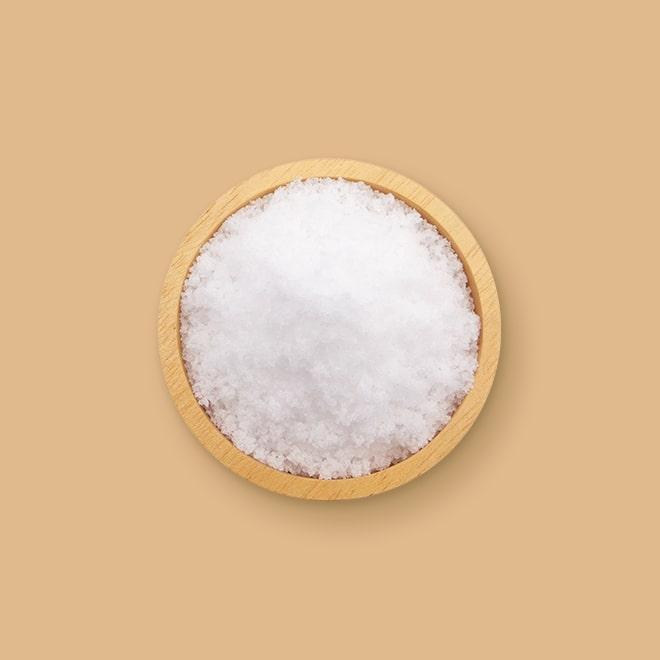Salt




Salt is a simple mineral that is essential for life and tasty food.
Table salt is fortified with iodine to prevent goiter, which is when your thyroid enlarges due to an iodine deficiency.
Kosher salt is a coarse, larger grained salt and usually does not contain any additives like iodine. According to the Torah all salt is Kosher but this salt received its name because its larger flakes worked best to “kosher” (remove the blood) meat.
Finally, finishing salts like sel gris, flake salt, and fleur de sel are used to top salads and steaks, or even cookies.
Store salt in a airtight container or a dry place, far away from heat or direct sunlight.
You can also use a ceramic salt pig or leave some salt in a dish next to the stove top for handy use.
Add a few grains of dry rice to any salt that has clumped together. The dry rice will help to pull and absorb the moisture out.
Rust or food stuck on your cast iron skillet? Use a nylon scrub brush and Kosher salt to clean it.
Both salt and honey have anti-inflammatory properties to soothe skin and calm breakouts and irritation. Create a paste and use as a face mask, or apply to itchy skin.
Salt is a natural antihistamine. Taking half a teaspoon of salt in a glass of water can help in clearing up sinus and bronchial congestion.
Salting preserves food using dry edible salt. Most bacteria and pathogens cannot survive in a highly salty environment due to osmosis. Salt sucks the moisture from these organisms and they die.
In a Ziplock bag, add ½ cup of half and half, sugar and vanilla. Squeeze out air and seal. Place in a larger bag or jar with ice and salt. Shake until you make your own ice cream! The salt lowers the freezing point of the water and turns the half and half to iced cream!
Most recipes add salt in the end, but for better flavor salt as you go. Kosher salt is lighter and you are less likely to over-salt your food, remembering that a tablespoon of kosher salt, is only 2 teaspoons of table salt.
Use salt to remove moisture from eggplants, cucumbers and zucchini, so they don’t water down a dish.
Salt your fruits? Try it on watermelon and citrus to enhance flavor and sweetness.
Use your hands to season your dishes with salt. Pinch by pinch allows for more precision.
If you over salt a soup or stew, you can either dilute with unsalted stock or water, or you can peel and quarter a potato and simmer for 15 minutes. Remove potato before serving.
Salt maintains your body’s electrolytes which bolsters transmission of information between the brain and nerve cells. It also keeps your heartbeat steady and prevents muscle cramps.
Salt aids the body’s control of blood sugar by improving insulin sensitivity and aids in digestion.
Sea salt is the world’s oldest antibiotic having anti-viral properties. It can be a great substitute for antibiotic drugs minus the side effects.
Corrections or improvements? Email us at
content@sidechef.com